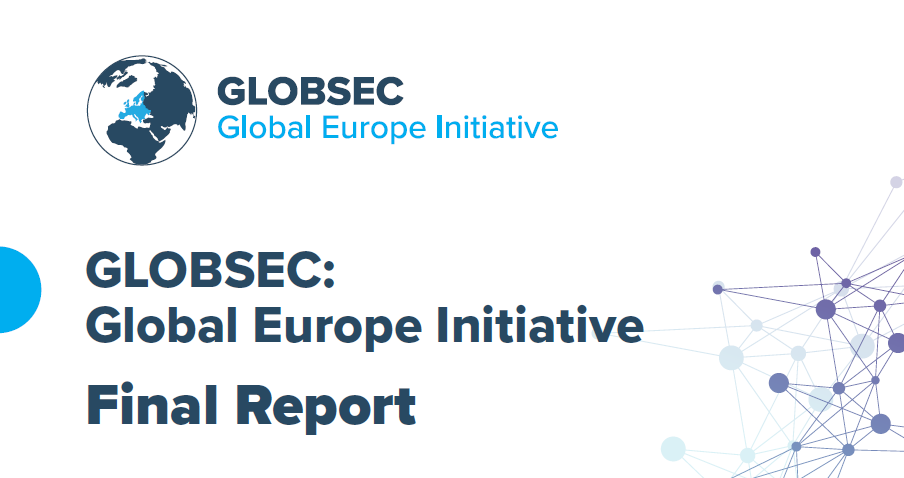GLOBSEC Global Europe Initiative Final Report

This past year has profoundly shaken the resolve that geopolitics belongs to the dustbin of history. Russia’s invasion of Ukraine has foregrounded conventional security concerns even as cyber and other conflict domains continue to pose hybrid threats. The volatility of existing supply chains further spotlights overdependencies on China. How could and should the EU become a more relevant and stronger global geopolitical player in a climate of superpower competition?
Trade and the economy cannot be separated from security. Protecting (and strengthening) the international order founded on the tripod of liberal democracy, the market economy, and international institutions and norms should continue to be the guiding principle for the EU’s external action. Democratic regimes and all those committed to upholding the stability of an international order created following the Cold War will face growing threats from authoritarian, revisionist and revanchist regimes. Dividing lines in the international system will, therefore, run primarily between revisionist, disruptive and destabilizing actors and those defending the order and stability provided by the post-Cold war international system and, secondarily, between authoritarian and democratic states. The order built on the norms and rules of the post-Cold War era is indeed a legitimate one and should be defended.
This report develops actionable and practical policy recommendations that should contribute to EU coherence and effectiveness in its external action. The analytical part of the report focuses on three fields:
⊲ Governance and deliverability in external action,
⊲ Bringing together internal strengths and external instruments,
⊲ Building the EU’s regional clout.
The report concludes by proposing a set of concrete steps to be taken.
Learn more in the PDF below.
